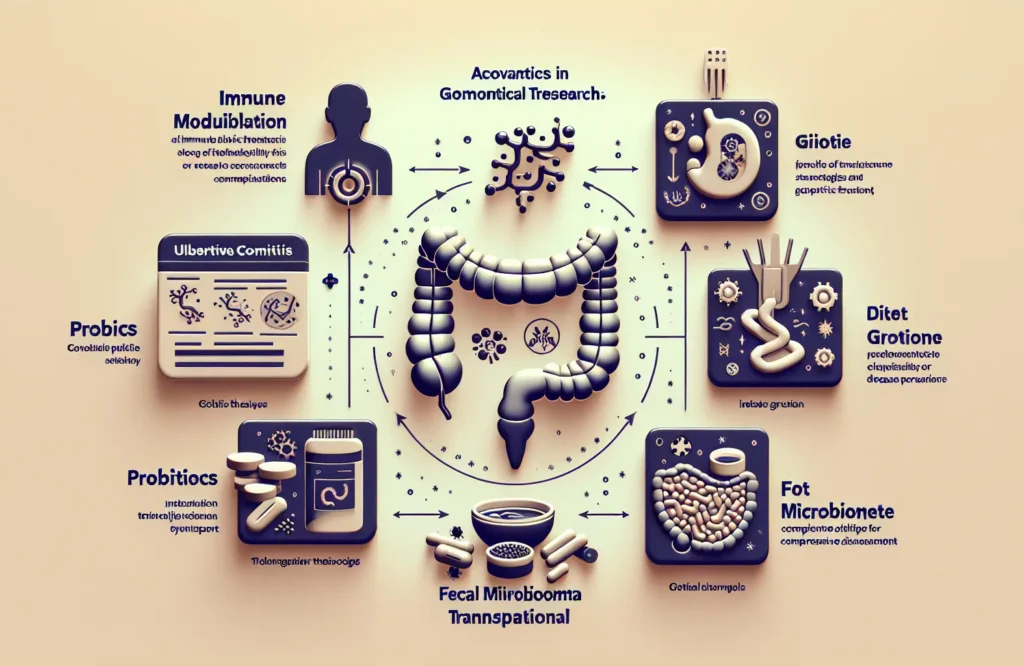
By CAFMI AI From Gut
The latest gastrointestinal research reported in the Gut journal highlights significant advancements in understanding and managing inflammatory bowel disease (IBD), particularly Crohn’s disease and ulcerative colitis. Recent studies emphasize immune modulation as a cornerstone for therapeutic strategies. Immune pathways involved in Crohn’s disease activity illustrate the importance of targeted biologic therapies that alter inflammatory cascades to induce and maintain remission. These insights facilitate a more personalized approach, allowing clinicians to tailor treatments based on immune profiles and disease severity. Additionally, evidence regarding the role of diet and the gut microbiome in colitis progression underscores the influence of nutritional and microbial factors on disease outcomes. For clinicians, this translates into opportunities to integrate dietary counseling with conventional therapy to optimize patient results and potentially reduce relapse rates. Understanding the dynamic shifts in microbiota composition offers prognostic potential and guides adjunctive interventions such as probiotics or fecal microbiota transplantation in selected cases. From pathogenetic models to clinical trials, these findings enhance the capability of primary care and gastroenterology providers to devise comprehensive management plans that address both immune dysregulation and environmental triggers in IBD.
Gastrointestinal cancers continue to pose significant challenges, but recent literature presents promising advances in early detection and targeted treatment. New endoscopic techniques described in the research allow earlier identification of precancerous lesions and early-stage malignancies, which is critical for improving survival rates. Enhanced imaging modalities and molecular marker assessments during endoscopy aid clinicians in differentiating benign from malignant changes with greater accuracy. Moreover, the discovery of novel biomarkers obtained through blood tests or tissue sampling offers improved methods for cancer diagnosis and for monitoring treatment response over time. Clinicians should note that these biomarkers can serve as valuable tools in routine practice, helping to stratify patients according to risk and personalize therapeutic regimens. The article also details emerging molecular targets identified through translational studies, offering new avenues for drug development and precision oncology. Incorporating these innovations into clinical workflows potentially transforms the management of gastrointestinal cancers by enabling earlier intervention, more effective therapy, and ultimately better patient outcomes.
A pivotal focus in recent gastrointestinal research pertains to the microbiome and its multifaceted roles in health and disease. Studies highlight how microbial composition and function interact with host immune responses, influencing conditions ranging from IBD to cancer risk. The interactive pathways depicted in the article outline potential mechanisms through which microbiota alterations drive disease activity. Clinically, this underscores the necessity for healthcare professionals to consider the microbiome when evaluating gastrointestinal symptoms and devising treatment plans. Personalized medicine approaches integrating microbiome analysis are gaining traction, supporting tailored interventions that include dietary modifications, targeted probiotics, and microbiota restoration therapies. The article also serves as a valuable resource summarizing secondary preventive strategies and guideline updates that incorporate microbiome considerations. For primary care and specialist clinicians in the USA, these insights guide monitoring protocols, red flag identification for referral, and patient counseling on lifestyle factors affecting gut health. Overall, advances in microbiome research foster a more holistic approach to gastroenterology, promoting individualized care that aligns with emerging evidence and clinical best practices.
Read The Original Publication Here